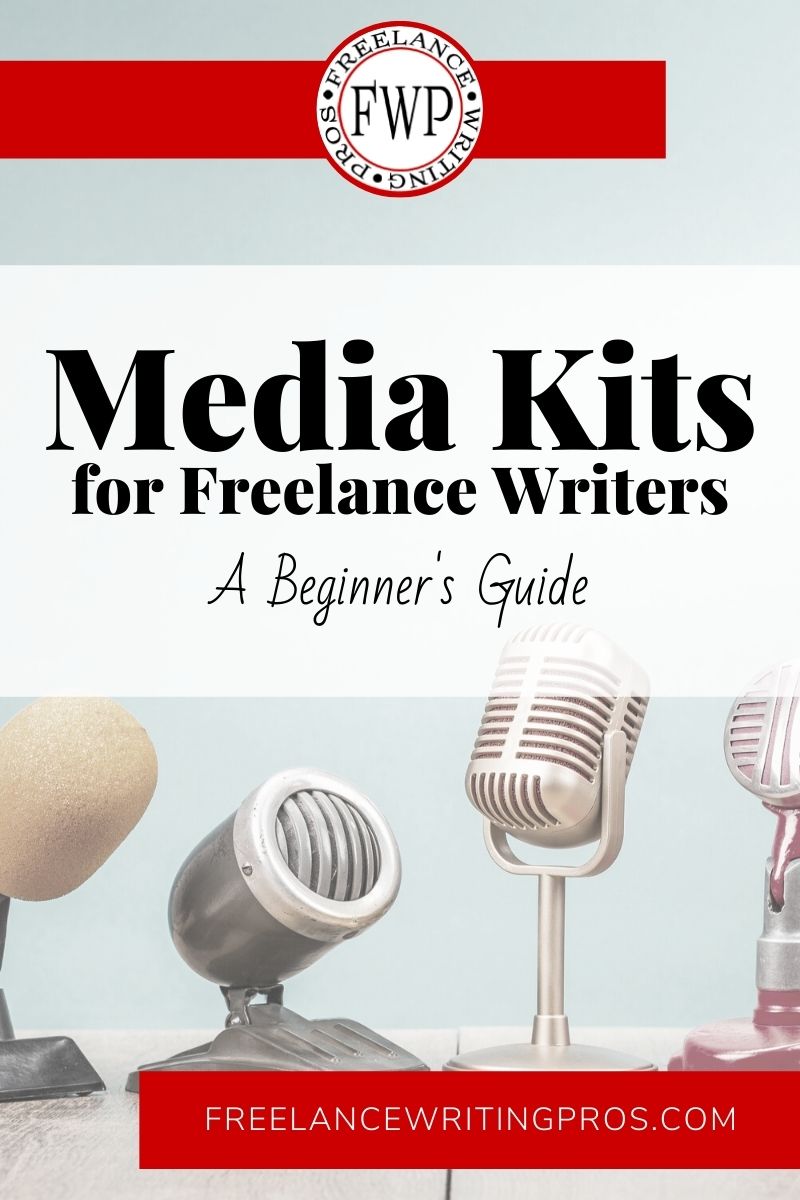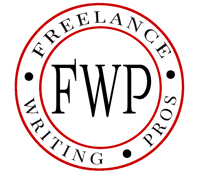
As you might know, I have a background in public relations. A big part of that job involves media relations and helping my clients pick up earned media coverage. In addition to tools like press releases and feature pitches, this is a place where media kits can come in handy.
Let’s explore media kits and why they’re worth considering as a freelance professional.
What is a Media Kit?
A media kit, in its simplest sense, is a collection of information that aims to make the job of members of the media easier when they’re interested in covering you in some way. It answers questions such as:
- Who are you?
- What have you done or accomplished?
- Why are you newsworthy?
- Why are you an expert source who should be cited or interviewed?
- How can someone reach you if they want to cover, quote, or interview you?
There is no single correct format for a media kit. It might be a .pdf download (an “electronic press kit” or EPK). It might be a physical collection of documents. Or, more likely these days, it will be a collection of online documents and references on your website, accessible to members of the media 24/7 (in more of a newsroom format).
Media Kits for Freelance Writers: Do You Need One?
If you’re a freelance writer and you want media coverage of any kind, having a media kit might not be essential, but it is a good idea. It’s about your recognition and reputation as a leader in your specialty area.
Let’s use me as an example. And I’ll note up front that while I’ve been building media kits and online newsrooms for clients for around 17 years, I still haven’t added one to my sites. That will change in coming months when I overhaul my main company website, because my media kit needs to account for different specialties and the different types of work I do rather than having different media kits on each of my sites. But having a media kit available not only helps the media. It can also save you time.
I happen to focus part of my business on helping other writers. So it makes sense for my media kit to include things like quotes and interviews on major writing blogs or references in writers’ magazines.
That said, while I focus on that with some of my sites, my freelance experience is more heavily tied to the PR and social media industries. So it also makes sense for me to include media references and interviews related to those areas — from magazine and newspaper citations to radio and podcast interviews.
These are the kinds of things that demonstrate a past willingness to work with the media, your openness to being a source, and your credibility.
While this isn’t directly about landing new clients, it can help there too. When clients see you’re often cited, ranked, or interviewed by sources they trust, it shows them they can trust you too.
But these kinds of specialty-oriented citations are only one small part of your media kit.
Media Kits for Freelance Writers: What to Include
You’ve decided to create a media kit to promote your writing business. Now what should you put in it? Here are some suggestions for your media kit or online newsroom specific to freelance writers:
- Interviews with you about your area of expertise
- Quotes from you in publications
- Important references to your business, website, or work (such as being named a top freelancer in your specialty area by a relevant publication)
- Your professional bio
- A high-resolution photo
- Freelance credits related to your specialty area (though I’d make sure they’re clearly labeled freelance bylines and not treated as earned media coverage)
- Key endorsements or testimonials (from people in your specialty area — not clients)
- Any press releases you’ve put out recently
- Media contact information (how you want to be reached; include social media accounts)
- Any important background or statistics you want to highlight (key clients, awards, accomplishments, etc.)
- Any other downloads you want to make available (like a high-resolution company logo or a book cover graphic if you have one relevant to your freelance work)
If you go the online newsroom route, you might also include:
- An email subscription option for those covering your specialty area to receive your news releases
- A way for members of the media to search your past news releases
- A more thorough archive of your past press releases
- Feeds of your most recent social media updates (from strictly professional accounts)
Putting Your Media Kit to Work
Here’s the thing about media kits and newsrooms: simply having one isn’t enough. In order for it to help you expand your visibility as a freelance writer, it needs to be visible in its own right.
How can you do that?
First, get it on your website. In this day and age there’s no reason for you to only have a print media kit to hand out. Put together a digital newsroom or EPK journalists, bloggers, and anyone else who might need this information can find.
Make sure the media section of your website is prominently linked from all pages (even if it’s hosted separately or on a third party service). If you can include a “Media” link in your main navigation bar, do it. You can tuck it as a sub-menu item under your About page (and link to it from that page) if you absolutely must. But also include a link in your footer either way; that’s a common place for them, so it’s somewhere visitors are likely to check.
Even that isn’t enough though. Make your media kit content as search engine friendly as possible. When people search for images of you, make sure your newsroom’s high-resolution photo collection comes up. If they search for your books, make sure your book’s official cover art and backgrounders come up. When people want information on you, your bio should be fairly easy for them to find.
Finally, whenever you put out a press release, include a link to your media kit or newsroom. This might be a direct mention of it. Or you can add a link to it in your email footer if you’re frequently in touch with journalists and bloggers.
On that note, don’t forget to get out there and start networking with members of the media in your industry or region. The best PR efforts always revolve around relationships.
The best media relations also involves you making journalists’ lives easier. Your media kit is more about helping the media than it is about you. Remember, the point of your media kit is largely to answer the most common questions members of the media will have, and to get them those resources in as frictionless a way as possible. Doing that saves both of you time.
Whether or not a media kit or newsroom is right for your freelance writing business depends on how important it is to be seen as a trusted source in your specialty area. But, if nothing else, your media kit can be motivational. When I started building a private archive of past media coverage, I was amazed by how much I’d forgotten. Not all of it belongs in a public media kit, but consider the exercise of assembling media clips and interviews. Perhaps it will give you a boost in another way, letting you look at your career through someone else’s eyes.

This was a great article. Many writers don’t think to create a media kit and it looks like it can be done with minimal financial effort. I think it’s a great way to get the writer’s name out there. Thank you for sharing!
It definitely doesn’t require much financial investment. Think of it almost like your online portfolio for your freelance services, only it focuses more on coverage, quotes, and mentions than the work you’re paid to do.
Very nice detailed post about media kits for writers. I’ll need to refer my media kit template buyers to this post for tips.
Thanks Sofia.
Great tips, Jennifer. Thanks!
When are you going to write about freelance writers using media kits from magazines to find out about the audiences they intend to write for?
I think that’d be another good topic to discuss, and you’d do it justice, I’m sure.
Thanks again.
Hi Mohamed. It’s not in the plans right now, but you’re right. Learning how to read and understand them for market research is a great topic, and not only for magazine writers. I’ll add it to my list. 🙂